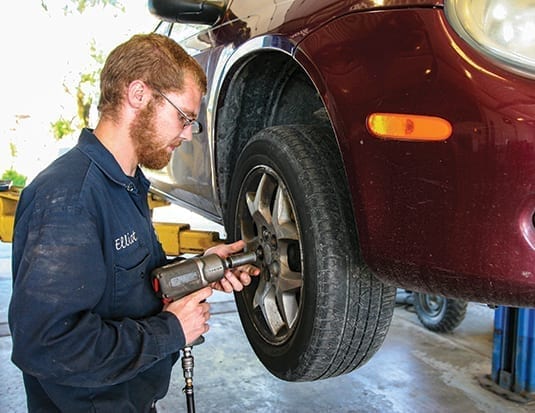Jobbers have to consistently engage with their customers and be well prepared in advance to address their specific needs.
For any business in any industry, providing excellent customer service and looking after the customer’s needs is crucial. The story is no different for jobbers. They work as a support system for their auto service provider customers, not only providing the parts but also sharing information regarding the products and current industry trends.
“Understanding the customer’s needs is paramount; failure is imminent without this. Since many jobber businesses are located in small communities, they are often not only involved with their customers on a business level but also on a community level through programs like charity initiatives and sporting events. They have to be visible so that they can have honest and clear dialogue,” says Robert Pitt, Director of Sales, Canada at Power Stop Brakes.
Engaging with the customers
Effective communication is key to understanding customers’ needs for jobbers. “The strategy to addressing their specific needs is ultimately straightforward. It’s listening to clients, talking with them and providing consistent engagement with them,” says Pitt.
Conversations with auto service providers depend on their conversations with the vehicle owners, which in turn are based on the customer’s requirements. Pitt believes that jobber businesses successful in the marketplace are the ones that continuously engage with their customers, either through the sales representatives or through the owners themselves. He adds that if jobbers are not listening and talking to their customers to understand their specific needs, they will find somebody who will.
According to Allan Wood, Manager at Ideal Supply, the counter person plays an important role in establishing good communication with the customers. Wood says that training available from NAPA, specifically for the counter staff, can help them in identifying the different types and qualities of products. “Counter staff need to be well informed so that when the customer calls for the products, they know what will suit their needs,” he says.
Besides the counter person, Wood also recommends having an account manager to discuss the mix of products available with the customers. He notes that engaging with the customers ultimately helps determine what types of products are placed on the jobbers’ shelves.

Common requests
Auto service providers usually have a set of common requests. “The clients request to know the products that jobbers have, that the products can be delivered quickly and that they are of suitable quality,” says Pitt. He explains that quality has become a crucial need for auto service providers because customers’ comebacks are expensive. “The clients want to know that when they install the product in their customers’ vehicles, it will perform the way it is supposed to, thus keeping their reputation secure.”
Another major request from auto service providers today is the sharing of knowledge. “Newer vehicle models are coming up every day with new technologies. We have electric vehicles now, and there are more computer systems in some cars today than there were in the Space Shuttle. It is getting more and more difficult for auto service providers to understand and invest in all the equipment that they need to make the right diagnosis. So, knowledge is basically what they look for all the time,” explains Pitt.
He finds this request a little difficult to meet. Pitt notes that in any successful jobber operation, the store can potentially touch 300 different manufacturing lines in the course of a month to best serve their customers even though the business primarily functions with 30. “There are a lot of new technologies, and the jobber is handling an enormous number of different products,” he explains. Therefore, to fulfill the expectation of knowledge and information sharing with the service providers, they require the support of the manufacturing companies and vendors.
Being prepared
To address the needs of customers adequately, jobbers have to be prepared to handle any challenges thrown their way. As an example, Wood notes that with the arrival of winter tire changeover season, the challenge jobbers face is meeting the demands of all their customers without losing out on any sales. For such challenges, he suggests being prepared for the seasonal opportunities and ensuring that the facility has the appropriate staffing.
With different kinds of technologies and solutions that are available to manage businesses today, being prepared need not be a cumbersome task. Pitt suggests that jobbers should invest in a good operating platform. He says that this will help them in maintaining the inventory, thus enabling them to manage their customers’ needs better.
Additionally, he says that the plethora of information available today can help them with forecasting trends to appropriately serve automotive service providers. To stay abreast of current industry trends, Pitt advises jobbers to refer to information available through industry publications and blogs to stay up to date. “The last piece of this is investing in education through the industry associations. Institutions like Northwood University and virtually every major manufacturer/vendor also have training options available through them. So, when jobbers take all that information in, they are able to provide the best service to their customers,” says Pitt.



